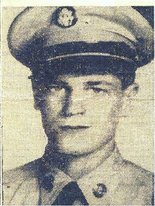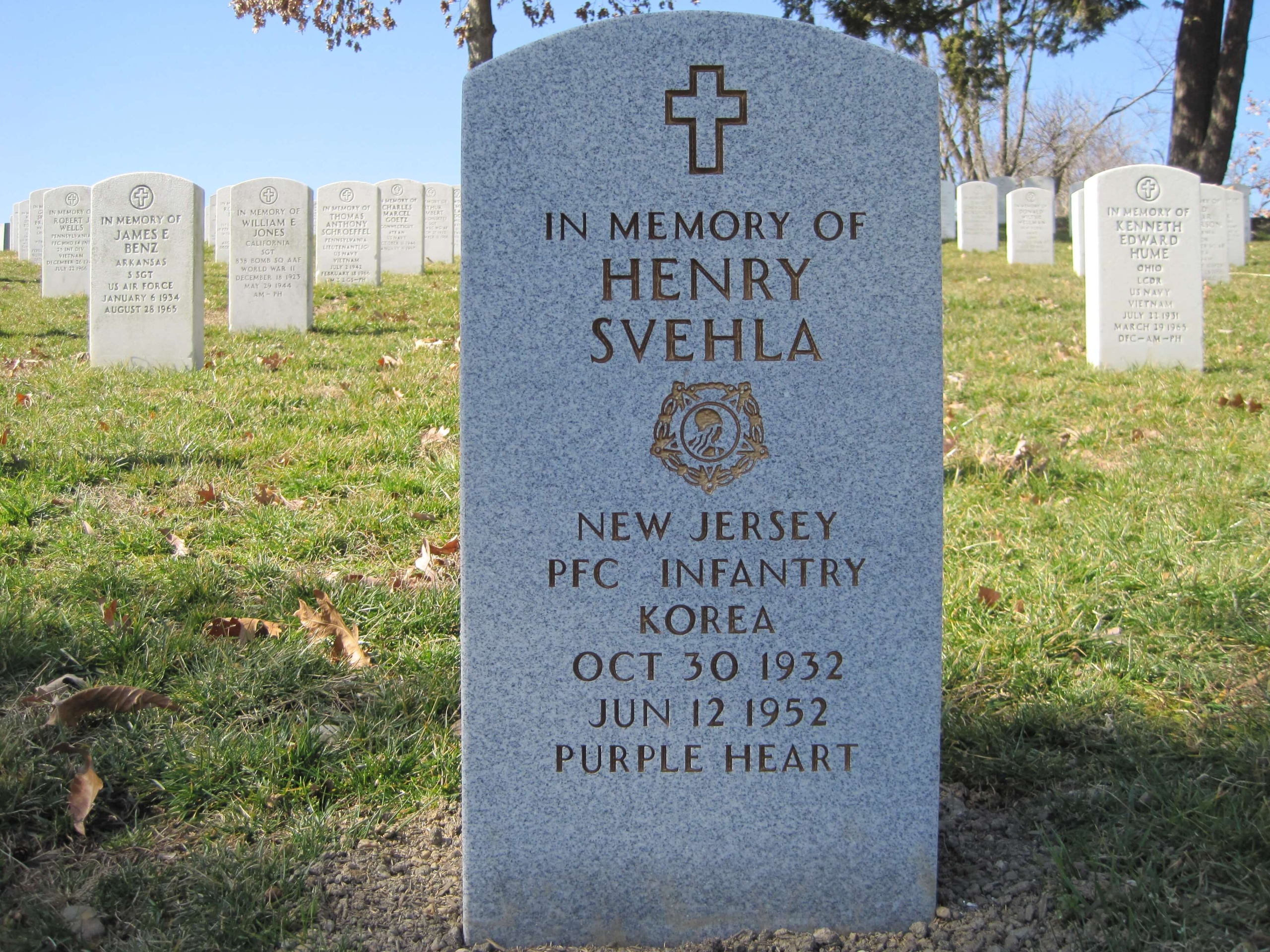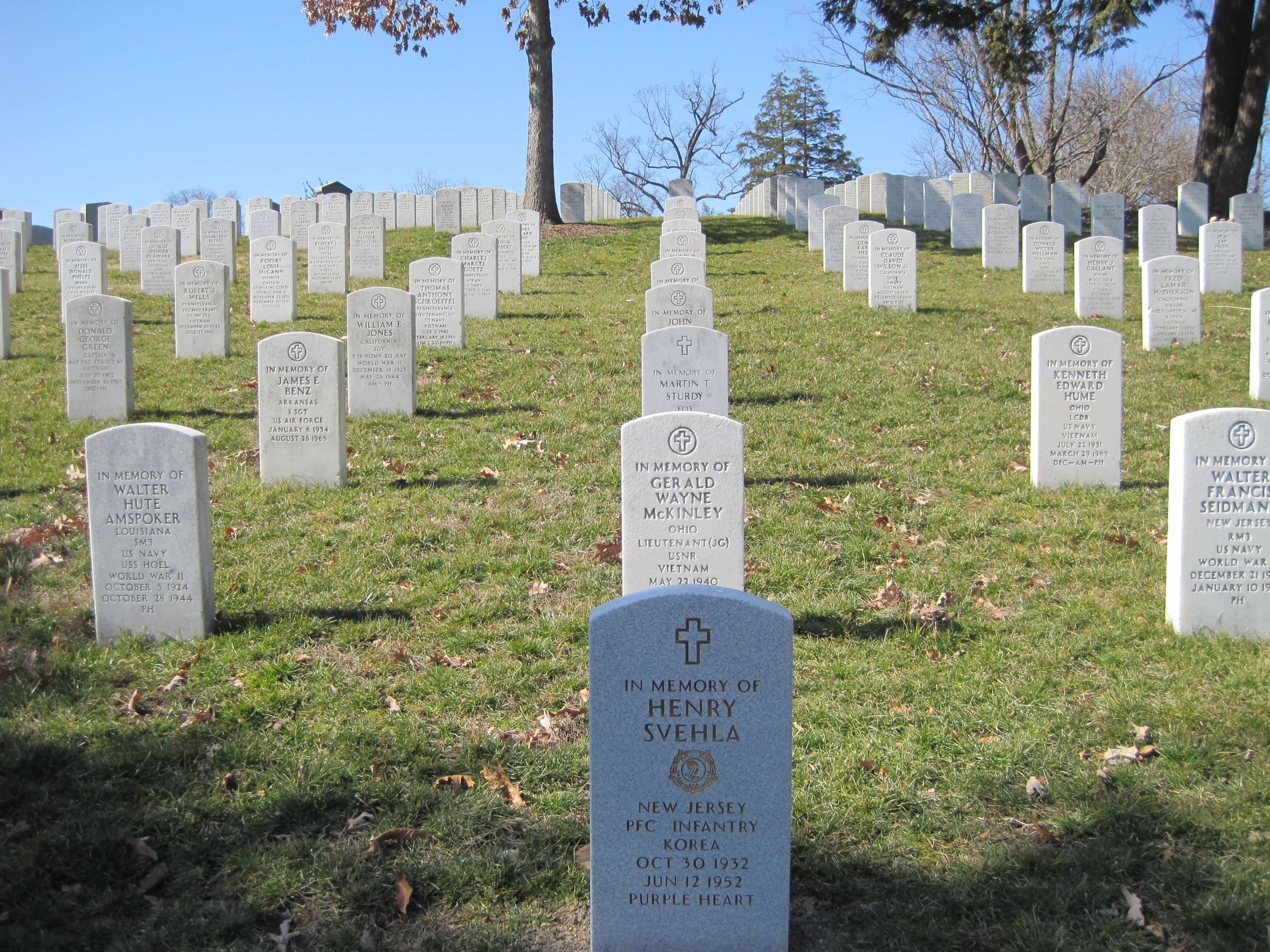Nearly five decades had passed since Henry Svehla was killed in the Korean War while shielding fellow U.S. Army soldiers from the blast of a grenade.,
The 19-year-old Belleville native’s remains had never been identified. Most of his surviving relatives were too young to have known him.
But Private First Class Svehla’s heroic story of self-sacrifice refused to die. His nephew, Anthony Svehla, wouldn’t let it.
For the past 10 years, Anthony Svehla has fought his own mission to get his uncle’s name on the exclusive list of Medal of Honor awardees.
This week, the White House announced his mission was finally accomplished: Nearly 59 years after he died on a Korean battlefield, Henry Svehla will be awarded the military’s highest honor by President Obama in a ceremony May 2.
“It was unbelievable,” Anthony Svehla said of his reaction to the news. “What a feeling. Chills through my whole body.”
Anthony Svehla said he grew up hearing about his uncle’s valor from his older relatives. The soldier’s mother, Susan, had received his Distinguished Service Cross, the second highest military decoration, after his death in 1952.
But Henry Svehla’s two brothers — John and Anthony — felt it wasn’t enough to recognize the bravery the teenager displayed in battle.
Henry Svehla had been one of six children born to a mechanic and a stay-at-home mother in the midst of the Great Depression.
The remains of the brother they called “Squeeky” had never been returned to the family. But they knew he had been fighting as a rifleman with Company F, 32nd Infantry Regiment, 7th Infantry Division, when it came under heavy attack on June 12, 1952.
Saed Hindash/The Star-LedgerAnthony Svehla — the nephew of Henry Svehla, a private first class in the army during the Korean War — poses for a photo with some of his uncle's medals, an American flag, a New Heroic comic book form March 1953 that includes the story of his uncle, and a small photo of his uncle while fishing in the Atlantic Highlands in 1951.
Squeeky had been hit by shrapnel, but charged on, throwing grenades and firing his weapon. Then came the fatal grenade and, according to the White House statement, “undoubtedly aware of the extreme danger, he threw himself on the grenade.”
The story really meant something the brothers.
They felt “pride and a sense of injustice,” the younger Anthony Svehla said from his home in Belleville. “They felt their brother deserved the best their government had to offer, that his country had to offer. It was the ultimate sacrifice.”
In 2001, the family called the office of Representative Bill Pascrell (D-8th Dist.) for help.
Their case was passed to Celia Anderson, an aide in Pascrell’s office. She usually took these constituent cases, reaching out to the necessary agencies and getting results in a couple of weeks.
But the Svehla case was different. Because it was so old, Anderson said, more military records needed to be reviewed and those documents were harder to track down.
“We submitted a lot of paperwork” to various agencies, Anderson said. “Each time you think you have it all, because you’ve given so much, they ask for something else.”
To add to the crunch, Henry Svehla’s oldest brother, John “Big Boy” Svehla, was fighting cancer. The family hoped he would be able to accept the medal before he died.
Anderson even sent a doctor’s letter to the Department of Defense explaining John Svehla’s deteriorating condition, in hopes of expediting the medal-awarding process. But the matter was still under review when John Svehla died in August.
“This became a case that I wanted to see until the end, if it took 50 years,” Anderson said. “I hadn’t met the family personally, but the love of their loved one and their desire to gain what he had earned was so strong. I felt their pain.”
The good news came in February, said Anthony Svehla. For the ceremony, the family plans to ride to Washington D.C. in a bus, a clan 25 strong, he said. Henry Svehla’s sisters, Dorothy Mathews and Sylvia Svehla, will accept the medal.
“He was a courageous guy who protected his fellow soldiers by jumping on a hand grenade,” said Pascrell. “He deserved the Medal of Honor and more.”
Henry Svehla (circa 1932 – June 12, 1952) was a United States Army soldier who on May 2, 2011 was posthumously awarded the United States military's highest decoration, the Medal of Honor, for his actions in the Korean War. Previously he had been awarded the Distinguished Service Cross.
By June 12, 1952, Svehla was a Private First Class serving in Korea as a rifleman with Company F, 32nd Infantry Regiment, 7th Infantry Division. On that day, his platoon came under heavy fire and he charged forward to attack the enemy. When a grenade landed amidst his group, he smothered the blast with his body in order to protect those around him. He was killed in the explosion. His remains have never been recovered.
For these actions, Svehla was awarded the Medal of Honor by President Barack Obama on May 2, 2011 during a White House ceremony. His sisters Dorothy Mathews and Sylvia Svehla accepted the medal on his behalf. Also receiving a Medal of Honor at the ceremony was the family of Private First Class Anthony T. Kaho`ohanohano, a fellow 7th Infantry Division soldier killed in the Korean War.
A White House press release describes Svehla's actions:
Coming under heavy fire and with his platoon's attack beginning to falter, Private First Class Svehla leapt to his feet and charged the enemy positions, firing his weapon and throwing grenades as he advanced. Disregarding his own safety, he destroyed enemy positions and inflicted heavy casualties. When an enemy grenade landed among a group of his comrades, without hesitation and undoubtedly aware of the extreme danger, he threw himself on the grenade.
Medal of Honor Citation:
The President of the United States of America, in the name of Congress, takes pleasure in presenting the Medal of Honor to (Posthumously) to Private First Class Henry Svehla (ASN: RA-21748254), United States Army, for extraordinary heroism in connection with military operations against an armed enemy of the United Nations while serving with Company F, 2d Battalion, 32d Infantry Regiment, 7th Infantry Division.
Private First Class Svehla distinguished himself by extraordinary heroism in action against enemy aggressor forces at Pyongony, Korea, on 12 June 1952. That afternoon, while Private First Class Svehla and his platoon were patrolling a strategic hill to determine enemy strength and positions, they were subjected to intense enemy automatic weapons and small arms fire at the top of the hill. Coming under heavy fire, the platoon's attack began to falter. Realizing the success of mission and the safety of the remaining troops were in peril, Private First Class Svehla leapt to his feet and charged the enemy positions, firing his weapon and throwing grenades as he advanced. In the face of this courage and determination, the platoon rallied to attack with renewed vigor. Private First Class Svehla, utterly disregarding his own safety, destroyed enemy positions and inflicted heavy casualties, when suddenly, fragments from a mortar round exploding nearby seriously wounded him in the face. Despite his wounds, Private First Class Svehla refused medical treatment and continued to lead the attack.
When an enemy grenade landed among a group of his comrades, Private First Class Svehla, without hesitation and undoubtedly aware of extreme danger, threw himself upon the grenade. During this action, Private First Class Svehla was mortally wounded. Private First Class Svehla's extraordinary heroism and selflessness at the cost of his own life, above and beyond the call of duty, are in keeping with the highest traditions of the military service and reflect great credit upon himself, his unit and the United States Army.
- Action Date: June 12, 1952
- Service: Army
- Rank: Private First Class
- Company: Company F
- Battalion: 2d Battalion
- Regiment: 32d Infantry Regiment
- Division: 7th Infantry Division
SVEHLA, HENRY
PFC US ARMY
KOREA
DATE OF BIRTH: 10/30/1932
DATE OF DEATH: 06/12/1952
BURIED AT: SECTION MG SITE 27 Memorial Section – Body Not Recovered
ARLINGTON NATIONAL CEMETERY
Michael Robert Patterson was born in Arlington and is the son of a former officer of the US Army. So it was no wonder that sooner or later his interests drew him to American history and especially to American military history. Many of his articles can be found on renowned portals like the New York Times, Washingtonpost or Wikipedia.
Reviewed by: Michael Howard



